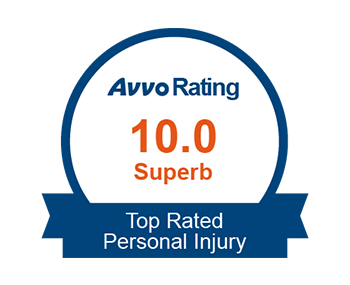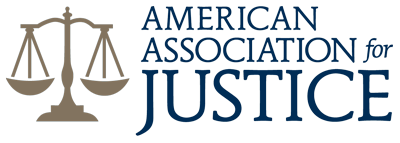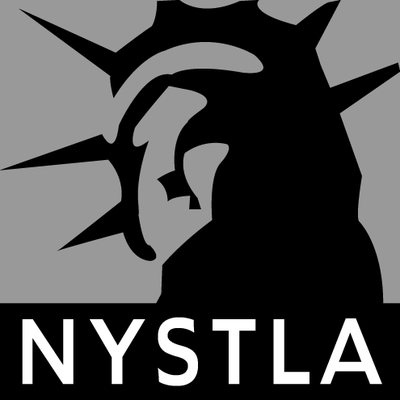In New York, spending time on the water can be one of the most enjoyable ways to relax, enjoy beautiful scenery, or spend time with loved ones. Boating can be a fun and rewarding experience, but it also brings certain risks. When boats collide in New York waters, people often suffer serious injuries, and the damage to boats and other property can be severe. When such accidents happen, understanding how to seek compensation can be vital to help recover costs and losses. There are legal paths available to people injured in boat collisions in New York, and knowing about these options can make the difference in receiving the support and justice they deserve.
Boating accidents can be complex. New York laws and federal regulations cover how boating is conducted, and there are often multiple factors involved when determining who is at fault. In many cases, victims of a boat collision have the right to pursue compensation, and understanding these rights is crucial to know how to start the legal process. When an accident occurs due to someone else’s negligence or dangerous behavior, injured parties may have the ability to seek justice through a legal claim. At, Andrews, Bernstein & Maranto, PLLC, we are here to guide you through the legal process and help you navigate the complexities of your case.
Understanding Liability in a Boat Collision
In any New York boat accident, determining who is responsible for the collision is the first step in pursuing a legal claim. Liability means determining who was at fault for causing the accident. This process may include looking at factors like which boat was speeding, which operator was distracted, or if any boats failed to follow the boating rules and guidelines. New York has strict guidelines for how boaters should operate their vessels safely. When someone ignores these rules, they increase the risk of a collision and injuries. Common causes of boat collisions include boating while under the influence of alcohol or drugs, distracted operation, speeding, and failure to follow the boating “rules of the road.”
In many cases, more than one person can be responsible for the accident. For instance, if both boat operators were distracted or if one was speeding while the other was impaired, both could share some responsibility. New York follows a system known as comparative negligence, which means that more than one party can be at fault, and each may bear a share of the blame. Even if someone was partially responsible for the accident, they may still be able to seek compensation, but their total recovery might be reduced based on their share of the fault. This system helps ensure that all parties responsible for an accident are held accountable.
The Role of Insurance in Boat Collision Claims
When a boat collision happens, insurance may play an important role in covering damages. Many boat owners have insurance policies that cover injuries, property damage, and sometimes even pollution or environmental damages that may result from an accident. However, insurance policies can vary widely, and not all types of damages may be covered under a typical boat insurance policy. In many cases, insurance companies may try to limit their responsibility or may offer settlements that do not fully cover the victim’s needs. This is where knowing the legal options can help victims understand their rights to seek full compensation.
Insurance adjusters will often assess the situation to determine who was at fault and may try to negotiate settlements. While insurance can help cover some expenses, the amount offered by insurers may not always meet the needs of those injured. This is particularly true if there are long-term medical costs, significant lost income, or serious damage to the boat. Victims have the option to negotiate or dispute insurance claims, but it can be beneficial to seek legal advice in doing so, especially if the insurance company denies full responsibility.
Filing a Personal Injury Claim After a Boat Collision
If injuries were sustained in the boat collision, an injured party might consider filing a personal injury claim. This claim is a legal process to seek compensation for costs like medical bills, lost wages, and pain and suffering. A personal injury claim allows injured individuals to hold the responsible party or parties accountable for their actions. This claim process involves collecting evidence, filing legal documents, and negotiating with the at-fault parties or their insurance companies.
The team is very personable, patient and empathetic with their clients. They are upfront with you and will explain the entire process with you, they never lead you to believe otherwise, they tell you like it is and will not sell you a million dollar dream. Trust in Andrews, Bernstein & Maranto, PLLC, they work for you and he looks out for your best interest.” - Jane D.
To file a personal injury claim, the injured party must show that the responsible party acted with negligence. Negligence in a boating collision could mean driving recklessly, not paying attention to other boats or people, or operating the boat while under the influence of alcohol. In the claim process, it’s important to collect evidence that shows how the accident happened and how the responsible party’s actions caused the injuries. This evidence can include witness statements, photographs of the accident scene, and any police or incident reports that may have been made. Gathering strong evidence is essential for a successful personal injury claim.
Damages Available in a Boat Collision Claim
When a person is injured in a boat collision, they may be able to recover various types of damages. Damages are the losses and costs that the victim faces because of the accident. In New York, people injured in a boat collision may seek economic damages, which cover measurable costs like medical bills and lost wages, and non-economic damages, which cover less measurable effects like pain and suffering. Economic damages are usually easier to calculate because they involve direct expenses, while non-economic damages are based on the emotional and physical impact of the injury on the victim’s life.
Medical bills can add up quickly after a serious accident, especially if the injury requires long-term treatment, physical therapy, or ongoing medication. Lost wages may also become a concern if the injuries prevent the victim from working, either temporarily or permanently. In some cases, if the boat collision causes long-lasting pain or emotional trauma, the victim can seek additional compensation for this suffering. These damages are meant to help the injured party regain their life to the best extent possible and cover the toll the accident has taken on their well-being.
Should I Take The First Settlement Offer? Steps to File a Personal Injury ClaimRelated Videos
Statute of Limitations for Filing a Boat Accident Claim in New York
New York law places a time limit on how long a person has to file a legal claim after a boat accident. This is known as the statute of limitations. For personal injury claims resulting from a boating accident, New York generally allows victims three years from the date of the accident to file their claim. However, there are some situations where the time limit may be shorter or longer depending on the circumstances. For example, if a government entity or public agency was involved in the accident, the victim may face additional steps and shorter deadlines for filing a claim.
The statute of limitations is crucial because if the victim misses this deadline, they may lose their right to seek compensation. Filing a claim as soon as possible after the accident can help ensure that evidence is fresh, witnesses are available, and the legal process can begin without delay. Acting quickly also provides the injured party more time to focus on their recovery, knowing that their case is underway and that their legal rights are being protected.
The Benefits of Legal Representation in Boat Collision Cases
Navigating the legal process after a boat collision can be challenging, especially for those who are recovering from injuries. Boat accident claims often involve complex legal and insurance issues, and proving fault can sometimes require thorough investigation and legal insight. A legal professional can provide the guidance necessary to gather evidence, communicate with insurance companies, and present a strong case. This support can make the process easier, allowing injured parties to focus more on their recovery.
Verdicts & Settlements
For victims seeking compensation, legal representation can also be essential when dealing with insurers who might attempt to undervalue claims. Having a legal professional on one’s side ensures that the victim’s interests are fully represented, and their right to fair compensation is protected. A legal professional can negotiate on behalf of the injured party, using their experience and understanding of New York boating laws to seek a favorable outcome. In the event that a settlement cannot be reached, a lawyer can assist in taking the case to court.
If you or a loved one has been injured in a boat collision in New York, you don’t have to face the challenges alone. Navigating the legal path to seek fair compensation can be complex, and taking the right steps early on is crucial for protecting your rights. Andrews, Bernstein & Maranto, PLLC, can guide you through every stage of your claim. Our dedicated team understands the challenges faced by victims of boating accidents and will work tirelessly to help you recover the compensation you deserve. Contact us today to discuss your options and start the journey toward justice and recovery.












